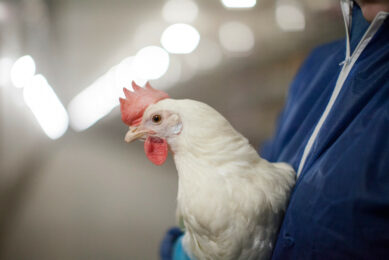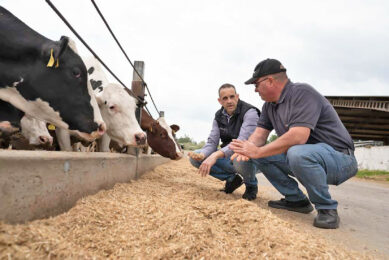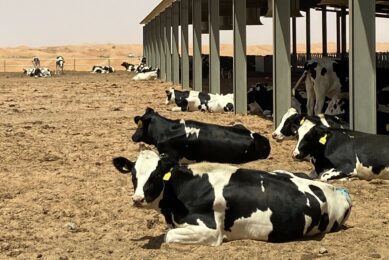Assessing GHG emissions: Enhancing efficiency and sustainability
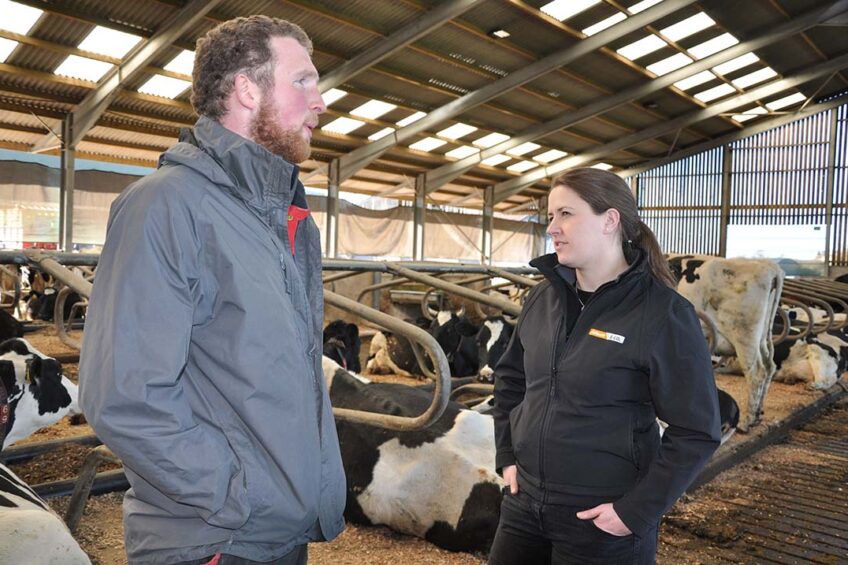
In modern agriculture, where concerns about environmental sustainability and profitability intersect, assessing greenhouse gas (GHG) emissions has become paramount. Understanding the sources and implications of GHGs allows farmers to identify areas for improvement, optimise resource use, and contribute to a more sustainable future.
Alltech’s Planet of Plenty vision
Alltech’s commitment to sustainability extends beyond mere emissions reduction. It’s part of Alltech’s vision of a Planet of Plenty, in which natural resources are preserved and agricultural practices nourish both people and the planet, addressing such crucial issues as climate change mitigation and food security for a growing global population.
Alltech’s comprehensive approach to enhancing efficiency and sustainability encompasses a broad spectrum of exceptional solutions and services. Alltech E-CO2, founded in 2009 and acquired by Alltech in 2015, is an integral cog in this approach. Its innovative technologies and methodologies strongly support sustainability on-farm and across the supply chain. By enabling farmers to assess and reduce their carbon footprint, E-CO2 contributes to the larger objective of creating a more sustainable and regenerative agricultural sector.Alltech E-CO2 serves a diverse range of customers globally, from individual farms to multinational organisations. Alltech E-CO2 has conducted more than 20,000 on-farm and remote assessments around the world, developing assessment models for crops and all major livestock species.Alltech E-CO2’s certified environmental assessments provide a wealth of in-depth data on:
- Productivity
- Health
- Feed quality
- Fertilizer
- Nitrogen balance
- Water, energy and resource use
The data collected is used to deliver practical on-farm and online programmes, as well as benchmark reporting, with clear, concise and customised advice on lowering carbon emissions.
Why assess greenhouse gases?
Greenhouse gases serve as crucial indicators of waste in agricultural systems. Assessing GHGs allows farmers to pinpoint hotspots and trade-offs within their operations, facilitating efficiency improvements. By understanding the interdependency of variables such as feed cultivation and utilisation, energy consumption and waste management, farmers can make informed decisions that resonate throughout the supply chain, ultimately enhancing sustainability and economic viability.
GHG emissions on farms stem from multiple sources, including fossil fuel use, enteric fermentation and manure management. These emissions occur through various pathways, such as direct emissions from livestock and indirect emissions from the use of fertilizers and machinery. Additionally, embedded emissions from pre-farm processes, including manufacturing and transporting inputs such as feed and fertilizers, further contribute to the overall carbon footprint of agriculture.
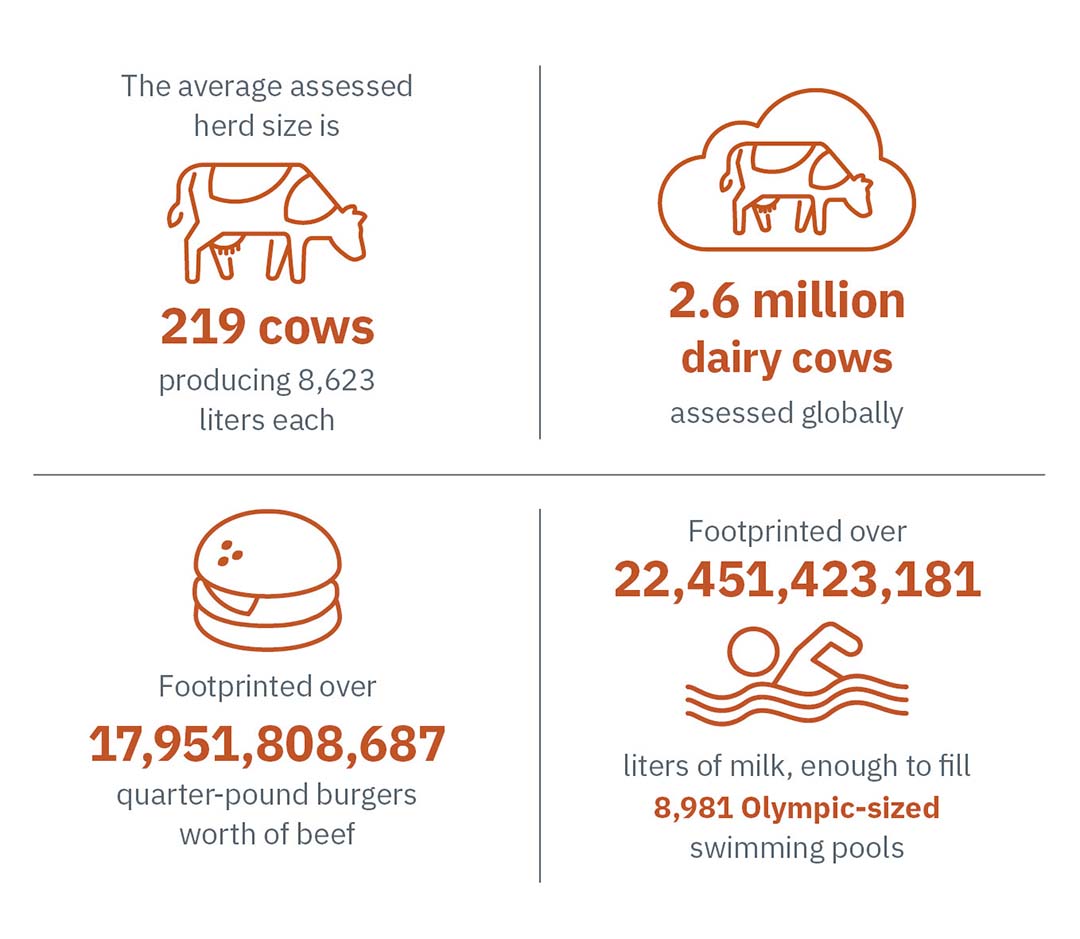 Alltech E-CO2 has launched the Feeds EA (environmental assessment) model, helping feed manufacturers and producers worldwide measure and lower the carbon footprint of their feed. Feeds EA measures the environmental impact of feed production at the feed mill level by assessing the impacts of existing compounds or blends. This is determined by calculating GHG emissions from production, cultivation, processing, energy utilisation and transport in manufacturing the feed. Feeds EA can calculate emissions from a database of more than 600 ingredients, including raw materials, soya products, byproducts and additives.
Alltech E-CO2 has launched the Feeds EA (environmental assessment) model, helping feed manufacturers and producers worldwide measure and lower the carbon footprint of their feed. Feeds EA measures the environmental impact of feed production at the feed mill level by assessing the impacts of existing compounds or blends. This is determined by calculating GHG emissions from production, cultivation, processing, energy utilisation and transport in manufacturing the feed. Feeds EA can calculate emissions from a database of more than 600 ingredients, including raw materials, soya products, byproducts and additives.Alltech E-CO2 works throughout the entire agricultural supply chain, offering pioneering farm assessment services, bespoke software solutions, environmental consultancy, and farm and feed scenario modeling. Methodologies such as PAS:2050 and ISO 14067, certified by third party assessors like the Carbon Trust, provide comprehensive GHG assessments tailored to needs of specific clients.
The environmental assessment models cover all major ruminant and monogastric species, with over 20,000 assessments conducted worldwide, across more than 30 countries. The Alltech E-CO2 team of 15 people comprises experts in agriculture, environmental science and data analysis, dedicated to providing actionable insights for sustainable agricultural practices.
“Assessing GHG emissions is not just about meeting regulatory requirements; it’s about identifying opportunities for improvement and innovation. Alltech E-CO2’s solutions have been instrumental in helping our customers optimise their operations while reducing their environmental footprint,” explains Emma Garlick, key account leader at Alltech E-CO2.
Working with Alltech E-CO2
Alltech E-CO2 not only provides information on emissions reduction but also support for performance improvements. Below is an example of an Alltech E-CO2 customer experience.
Meadow is a value-added ingredient business specialising in the dairy, confectionery, ice cream, prepared foods and plant-based industries. Meadow’s close relationship with its 500 UK farmers is key to guaranteeing a stable and secure supply of high-quality dairy ingredients for the world’s best brands, 24/7, 365 days a year. Meadow prides itself on fair prices, being easy to deal with, and supporting farmers to build and run stronger businesses through hands-on advice regarding sustainable, resilient and efficient farming.
“Our partnership with Alltech E-CO2 allows us to demonstrate our commitment to sustainable dairy by accurately collecting production information from our supplying dairy farms, via on-farm visits, and then verifying this data by using the Carbon Trust certified E-CO2 model,” says Jonathan Evans, head of farms at Meadow. “The Alltech E-CO2 team creates individual reports for producers, with actionable recommendations and identification of trends across our milk pool. This helps to improve on-farm efficiency and reduce associated greenhouse gas emissions.””
Conclusion
Assessing GHG emissions in agriculture is not just a matter of compliance; it’s a strategic imperative for enhancing efficiency, profitability and sustainability.
Alltech’s Planet of Plenty vision inspires innovation and collaboration across the agricultural supply chain. Through partnerships with farmers, industry stakeholders and policymakers, Alltech is fostering a holistic approach to sustainability that addresses not only GHG emissions but also soil health, biodiversity and water conservation. With innovative solutions and expertise from companies like Alltech E-CO2, farmers worldwide can more easily navigate the increasingly complex landscape of emissions management, driving positive change for generations to come.
Want to learn more or schedule an assessment? Visit us at alltech-e-co2.com



